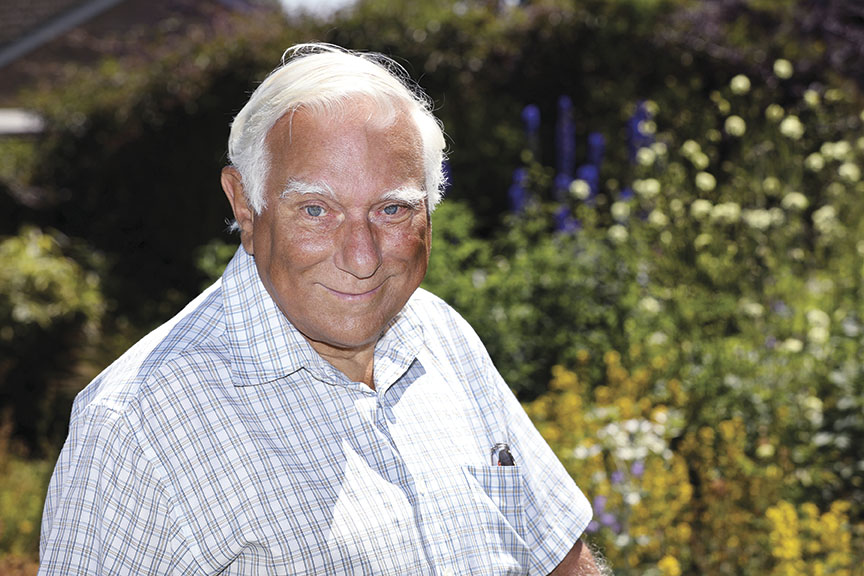
Get your power of attorney right
Prepare your power of attorney online, Our review can iron out the errors that lead to costly delays.
Find out moreBy clicking a retailer link you consent to third-party cookies that track your onward journey. This enables W? to receive an affiliate commission if you make a purchase, which supports our mission to be the UK's consumer champion.

New Which? research reveals the banks making life difficult for people acting with Power of Attorney for a loved one. We also tested the knowledge of frontline bank staff and found that they repeatedly doled out conflicting or misleading advice.
While there are currently more than three million registered Powers of Attorney- the legal document which gives someone (the attorney) authority to make financial, health or welfare decisions for another (the donor)- many people face an uphill battle to register and assert their authority.
When we surveyed 2,906 Which? members who have used powers of attorney within the past three years, they told us that firms routinely bungle the registration process or fail to recognise their legal authority, causing unnecessary stress at a difficult time.
Some 20% of attorneys told us banks were fairly difficult or very difficult to deal with, compared with less than one in ten who said the same about private pension providers.
When you first become an attorney, you must go to the effort of registering your powers with each and every financial company your donor has an account with. This can usually be done in-branch, however, Post Office Money and Tesco Bank insist that this is done by post (Tesco Bank even demands the original, and will not accept a certified copy).
At the Co-op Bank, all paperwork must be posted to a specialist team in head office, although attorneys can visit a branch where staff will scan and verify the relevant documents and send them on for them.
It was clear from our survey that this initial registration process is where most of the problems lie.
Yorkshire Bank was the worst provider in this respect, with 32% of attorneys surveyed rating it poor, although both Co-op Bank and HSBC weren't far behind (27%). Over one in five attorneys also gave the three banks below average scores for communication.
Building societies fared much better in our survey, most notably Yorkshire Building Society, which was rated highly by an impressive 85% of attorneys when it came to the registration process and its ability to carry out instructions efficiently.

'It was quite clear from first contact that Co-op Bank didn't have any procedure in place to accept power of attorney registration or instructions.
'By contrast, a single visit to a local building society was sufficient. Once the cashier had scanned the document, all I needed was personal identification at subsequent visits.'
An attorney should be able to act according to the terms agreed to by the donor, and banks should not impose further restrictions.
Yet Post Office Money, Tesco Bank and Virgin Money all refuse to let an attorney use online banking, even where the donor is no longer able to manage their own affairs.
Nationwide only allows online access and telephone banking where the donor is declared not to have mental capacity. It's also the only provider we surveyed that didn't give attorneys an additional debit card (the card can be held by either the attorney or the donor, but not by both).
When Which? researchers made calls to 14 banks posing as attorneys wishing to register a lasting power of attorney (LPA) on behalf of an aunt, very few banks could be relied upon to provide accurate advice.
On numerous occasions, HSBC and TSB said that the donor needed to register the power of attorney in person, despite both banks telling us this is not necessary.
Staff at HSBC and TSB also told attorneys they would not have access to the donor's online banking accounts. However, both banks confirmed to Which? that attorneys are entitled to the same access as the donor.
In contrast, Halifax, Lloyds, Nationwide and Santander all directed our researchers to a specialist power of attorney team and were able to answer our questions clearly and, for the most part, consistently.
An Office for the Public Guardian spokesperson said:
'We welcome this report from Which?, and will continue to work closely with the financial sector to improve levels of service to attorneys and deputies.
'We are currently developing an online register of donors and attorneys, and looking at how LPAs can be made more practical and accessible.'
It may be harrowing to contemplate the possibility of your loved ones losing the ability to manage their own affairs.
Having the difficult conversation long before there is any need for it should help the whole family feel more comfortable about their roles.
Here are our top tips for planning ahead:

Prepare your power of attorney online, Our review can iron out the errors that lead to costly delays.
Find out more